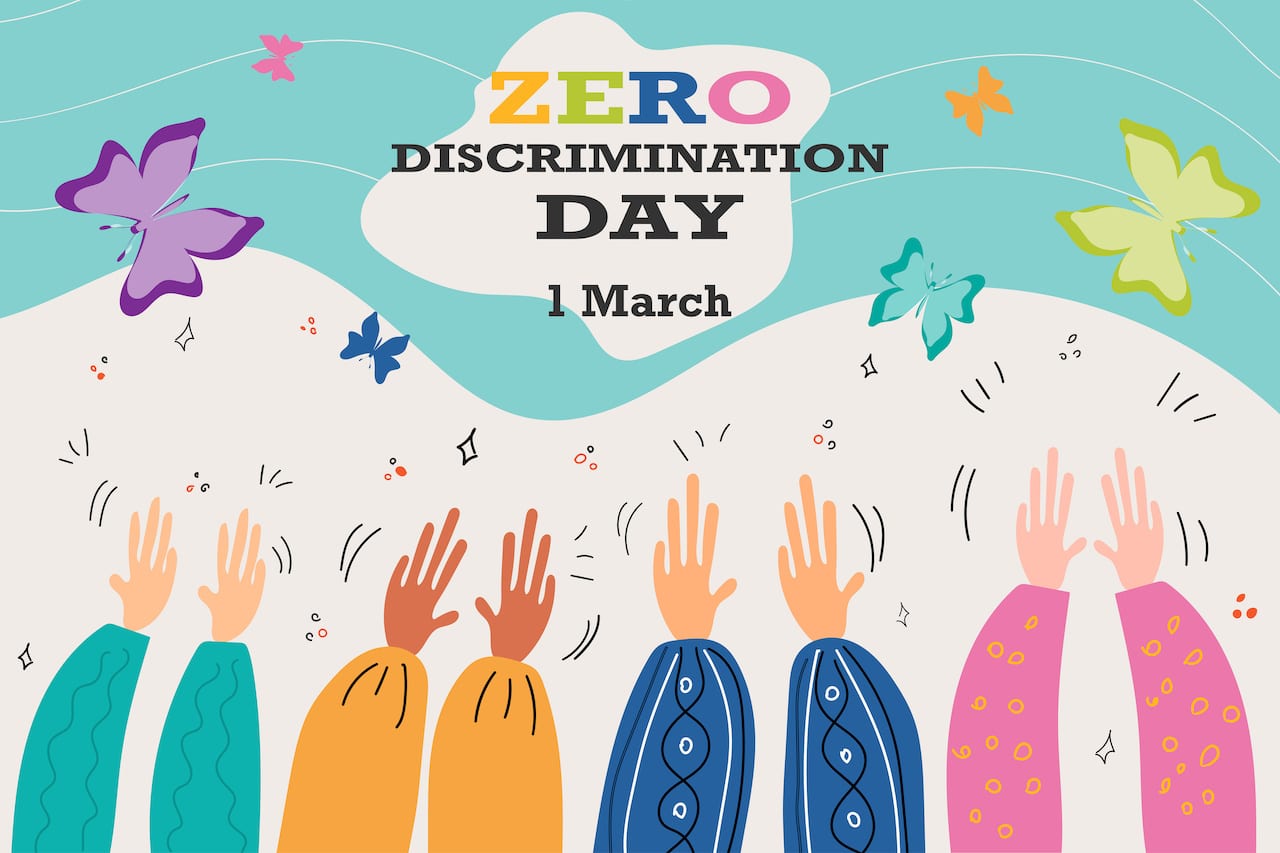Credit Sesame on using Zero discrimination Day as inspiration for knowing and protecting your financial rights.
You have a right to access financial products and services free from discrimination. This principle underscores Zero Discrimination Day on March 1, 2023. This is a good day to reflect on your own money management journey, celebrate your personal financial growth and remember that rules are in place to guard you against unlawful policies. Across the world, financial institutions, businesses and other organizations are working to eliminate discrimination based on race, gender, religion, disability and sexual orientation.
How can discrimination affect your personal finances and credit health?
Discrimination can have wide-ranging negative outcomes. For example, if a lender refuses to extend credit on the basis of a person’s protected class, it might result in financial hardship. In addition to leaving innocent consumers without access to a credit card or a loan, it could have other impacts. This could include a lower-than-anticipated credit score and overall weaker credit health, since a mix of credit products are important for higher credit scores. Further, people without credit access lack the ability to demonstrate good credit habits, such as making timely payments and using the right amount of available credit.
Additionally, financial discrimination could cause stress for people who are victims of misconduct. This might contribute to health complications. Organizations such as the Centers for Disease Control and Prevention are working to promote health equity to help address discriminatory practices some people groups have experienced.
Why is good credit important for everyone, and what makes up a good credit score?
Good credit provides you with several advantages. It allows you to access the financial resources you need for big expenses in life, such as a car or a house. Good credit can unlock loans that complement cash savings or other financial tools you plan to use for such purchases.
Additionally, good credit contributes to a healthy credit report and a strong credit score. This can make you eligible for credit card offers, lower interest rates on loans and better odds of securing a rental home or apartment if you move to a new area. That’s because certain organizations are authorized to pull your credit report to determine if you are a good fit before they extend a loan or a rental agreement.
Several factors contribute to a healthy credit score. This number quickly summarizes how well you’re managing your available debt. Credit mix is an important part of the equation. Credit mix is having several types of debt, such as a credit card and a student loan, rather than just one type. Credit use is another factor. Lenders want to see you use just a portion of the credit available to you, rather than using it to the max.
Other factors that impact your credit score include timely payments on loans. If you make payments in full and on time, your credit score is likelier to increase over time. It’s also important to remain stable with your credit. Rather than applying for loan after loan over a short period of time, demonstrate responsible payments over a period of months or years before taking on new debt.
What tips can you use to improve your credit health?
Improving your credit health requires a series of small and manageable steps, not big lifestyle changes.
Take stock of the credit cards and loans in your name. Make sure your income is sufficient to cover monthly balances. Pay the installment or required payment in full each month.
Get the free Credit Sesame app to keep an eye on your credit report and credit score. Be sure the information on your report is accurate. Report suspected fraud to the credit bureaus.
Explore free money management courses online or in your local community. Read a personal finance book, listen to a podcast or watch trustworthy videos with practical tips for good credit health.
How can financial discrimination happen, and how can you report it?
There are several ways financial discrimination can happen. In the most extreme cases, a lender might refuse to meet with you or to extend any type of credit.
In other situations, a lender might offer credit but increase the interest rate. They could also extend a lower amount of credit compared to what they would offer someone else with comparable credit. They could add discriminatory fees and not tell you about them – or label them in a way that’s designed to mislead.
Excessive amounts of paperwork, special requirements or extensive review periods that delay access to credit could be other forms of discrimination.
If you experience financial discrimination, the first step to take is to file a report with the U.S. Department of Justice. Its Civil Rights Division can review your report and determine the best course of action. You can learn more about the rights you hold on its website.
Another step you can take is to file a complaint with the Consumer Financial Protection Bureau. The site contains detailed instructions about the information and documentation to include with your submission.
What can financial institutions do to support Zero Discrimination Day?
Institutions such as banks and lenders can start by learning and following the law to ensure everyone has equal access to financial products and services. For example, the Equal Credit Opportunity Act prohibits discrimination.
These organizations can provide regular training for team members interacting with you and other consumers. Financial institutions can also subscribe to updates from agencies such as the Consumer Financial Protection Bureau. The CFPB provides ongoing information about efforts to eliminate human- and machine-initiated discrimination.
If you enjoyed Zero Discrimination Day as inspiration to assert your financial rights, you may be interested in:
- No credit history. No credit score. No credit.
- The Impact of Credit Invisible Americans Entering the US Economy
Disclaimer: The article and information provided here is for informational purposes only and is not intended as a substitute for professional advice.




















